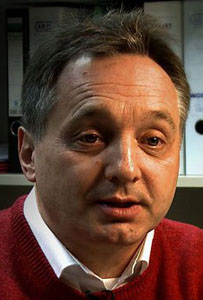NBA History of Science Seminar
Alexei Kojevnikov, "Space-Time and the Russian Revolution: Alexander Friedman and his Contemporaries."

Alexei Kojevnikov, University of British Columbia, Canada
Two short mathematical papers of 1922-1924 by Alexander Friedman demonstrated that in Einstein’s general relativity, the Universe can expand, contract, collapse, and be reborn. The introduction of the cosmological concept of a non-static Universe contradicted the long held and very strong assumption that a satisfactory cosmology had to provide for stability.
Little has been studied about the context in which Friedman’s ideas developed. In this presentation, I shall explore the reception of the relativity theory and other main intellectual novelties in revolutionary Russia following the end of the civil war in 1920 and the resumption of cultural exchanges with Europe.
The variety of, often rather strange, interpretations by scientists and non-scientists alike, contributed to a cultural climate in which the idea of the collapse and rebirth of the Cosmos became conceivable.
